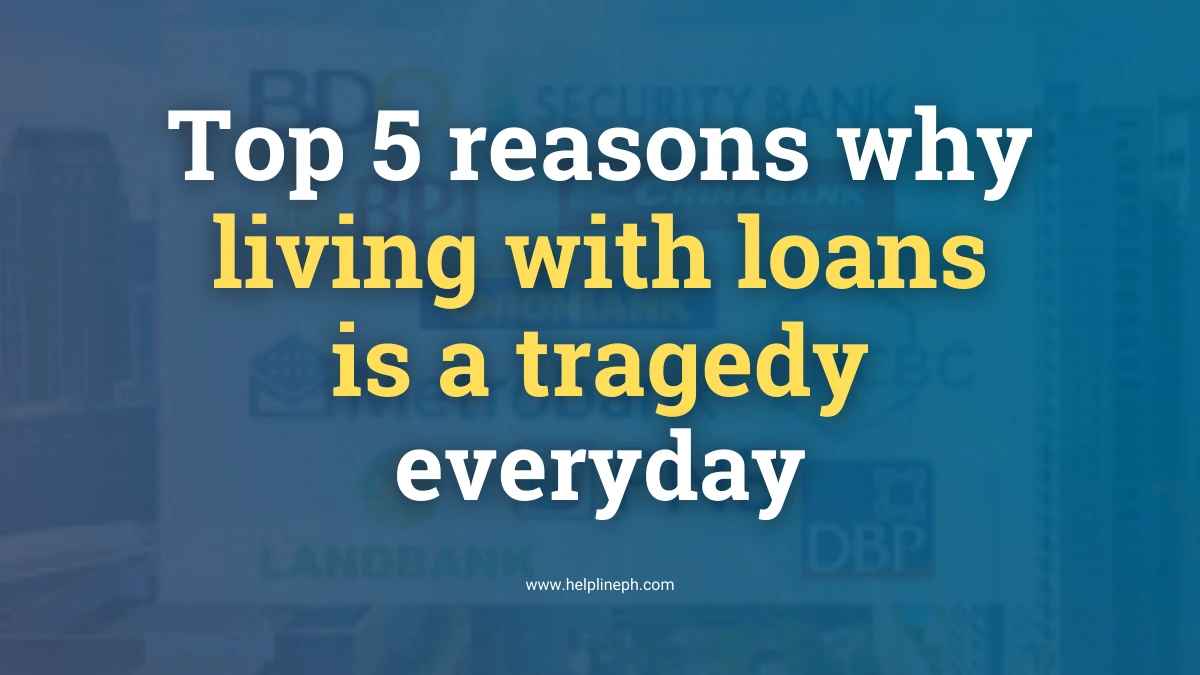As a teacher with a family to support, I can tell you that living with loans is a daily struggle. Like many teachers, I’ve had to take out loans to make ends meet, and it’s something that weighs heavily on me. I don’t shy away from admitting this because it’s a reality for so many. Dealing with debt has its own set of problems that affect my life in ways I never expected.
Here are my top 5 reasons why living with loans is a tragedy every single day.
1. Your Net Take-Home Pay is Barely Enough
One of the most painful realities of having multiple loans is that your salary is drastically reduced. Most of your paycheck gets eaten up by loan repayments, leaving you with a small amount to live on. For many teachers, this amount can be as low as 5,000 pesos a month. That’s barely enough to cover basic necessities, let alone any emergencies.
When your paycheck is already stretched thin, it feels like you’re working hard but never moving forward. It’s exhausting to see most of your hard-earned money disappear before you even have a chance to budget for yourself or your family.
2. The Anxiety of Unpaid Dues
Living with loans means constantly thinking about what you owe. It’s hard to relax when you know there are still unpaid dues waiting for you. Even if one loan helps you temporarily, it often feels like a ticking time bomb. Interest builds up quickly, making it even harder to pay off what you owe.
The phone calls from creditors when you miss a payment are another source of stress. Every time the phone rings, you get that sinking feeling in your stomach, wondering if it’s another reminder of your financial struggles.
3. Interest Piles Up When Deductions Are Late
One of the biggest frustrations is when loans aren’t deducted on time. When this happens, unpaid balances accumulate more interest, which only makes the debt harder to manage. You’re not just paying back the original amount anymore; you’re also dealing with interest that keeps growing month by month.
Catching up on these payments feels like trying to climb a never-ending hill. The more you delay, the higher the cost, and it’s tough to see a way out.
4. Sleepless Nights Worrying About Tomorrow
When you have loans hanging over your head, it’s hard to sleep peacefully. You constantly worry about where you’re going to get the money for the next payment. It’s a daily mental burden that never seems to go away.
The stress of financial uncertainty can lead to sleepless nights, as you replay scenarios in your mind and search for ways to stretch your limited resources even further. Worrying about the future steals your ability to enjoy the present.
5. Running Out of Loan Options
Eventually, you reach a point where you’ve maxed out all your loan options. When this happens, you realize just how alone you are in your financial struggle. Banks and lenders won’t offer you any more help, and even friends or family might hesitate to assist you because they know your situation.
At this stage, you feel like the weight of the world is on your shoulders. You’re trapped in a cycle of debt with no one left to turn to. It’s one of the most isolating and frightening feelings imaginable.
Final Thoughts: Be Careful Before You Borrow
Living with loans is truly a tragedy, especially for teachers who are already underpaid and overworked. If you have the option to avoid loans, consider it carefully before committing. The short-term relief may not be worth the long-term struggles.
Managing debt is not easy, and it’s a lesson many of us learn the hard way. It’s important to think twice before signing on for another loan because the burden can become overwhelming.
Frequently Asked Questions (FAQs)
Is it possible to avoid taking loans as a teacher?
Yes, it’s possible but very difficult, especially if your salary doesn’t cover all your monthly expenses. Planning a strict budget and finding ways to save can help reduce the need for loans.
How can I manage my loans better?
Creating a payment plan and sticking to a budget can help. Also, try negotiating with your lender for better terms or refinancing options.
What happens if I can’t pay back my loan on time?
If you miss payments, interest will accumulate, making it harder to pay back the original amount. You may also face calls from creditors or even legal action in extreme cases.
Should I consider debt consolidation?
Debt consolidation can be a good option if you have multiple loans. It combines all your loans into one, often at a lower interest rate, making it easier to manage.
Is borrowing from friends or family a good idea?
Borrowing from friends or family can help in emergencies, but it’s important to be upfront about your ability to repay. Mixing finances with personal relationships can sometimes lead to strained relationships.






